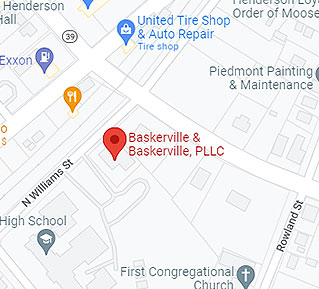 A will is usually enough to cover all of your assets and liabilities and dictates and determines what happens when you pass. The limitations on a will are you can only control one immediate transfer. For example, in a will, you can say “I give my daughter $10,000”. However, you can’t say “I am giving my daughter $10,000 if she graduates from college”. Further, in a will you cannot say “I’m giving this to my daughter to hold for my grandchildren”. That’s considered two transfers. You can only control an immediate transfer.
A will is usually enough to cover all of your assets and liabilities and dictates and determines what happens when you pass. The limitations on a will are you can only control one immediate transfer. For example, in a will, you can say “I give my daughter $10,000”. However, you can’t say “I am giving my daughter $10,000 if she graduates from college”. Further, in a will you cannot say “I’m giving this to my daughter to hold for my grandchildren”. That’s considered two transfers. You can only control an immediate transfer.
If you are trying to name an heir (a beneficiary based on certain conditions) then you need a revocable or irrevocable living trust. A trust is what you put in place when you have significant assets and are considering a generational will. With a trust, you can specify more than an immediate transfer and are not restricted by the same limitations as a will. For example, you can outline in your trust that you pay your grandchildren each $100 a month out of the rental proceeds from your real estate if they maintain a 3.0 GPA.
A will is going to be sufficient for most. Individuals planning for two or three generations down the road should use a trust.
Let’s Talk About The Medical Related Documents That Everyone Should Have.
The healthcare power of attorney, medical power of attorney or living will, all refer to the entity that determines what your end-of-life conditions will be. This is also commonly known as a healthcare agent, or a healthcare proxy.
The healthcare agent or a living will can specify demands such as not wanting to be on feeding tube, use a breathing machine, or anything else you may desire. If you are in a vegetative state or a permanent coma, the healthcare agent or living will can decide either to end or implement life prolonging measures.
You can’t wait until someone is in a vegetative state to ask whether they want to be on life support or not. You have to go over these things before the moment arises, and many clients find it very difficult to have these conversations early on. Because of the sensitive nature of loss, clients often find it easier to allow a lawyer to facilitate those conversations.
For more information on Estate Planning In North Carolina, an initial consultation is your next best step. Get the information and legal answers you are seeking by calling (252) 572-4495 today.

(252) 572-4495
